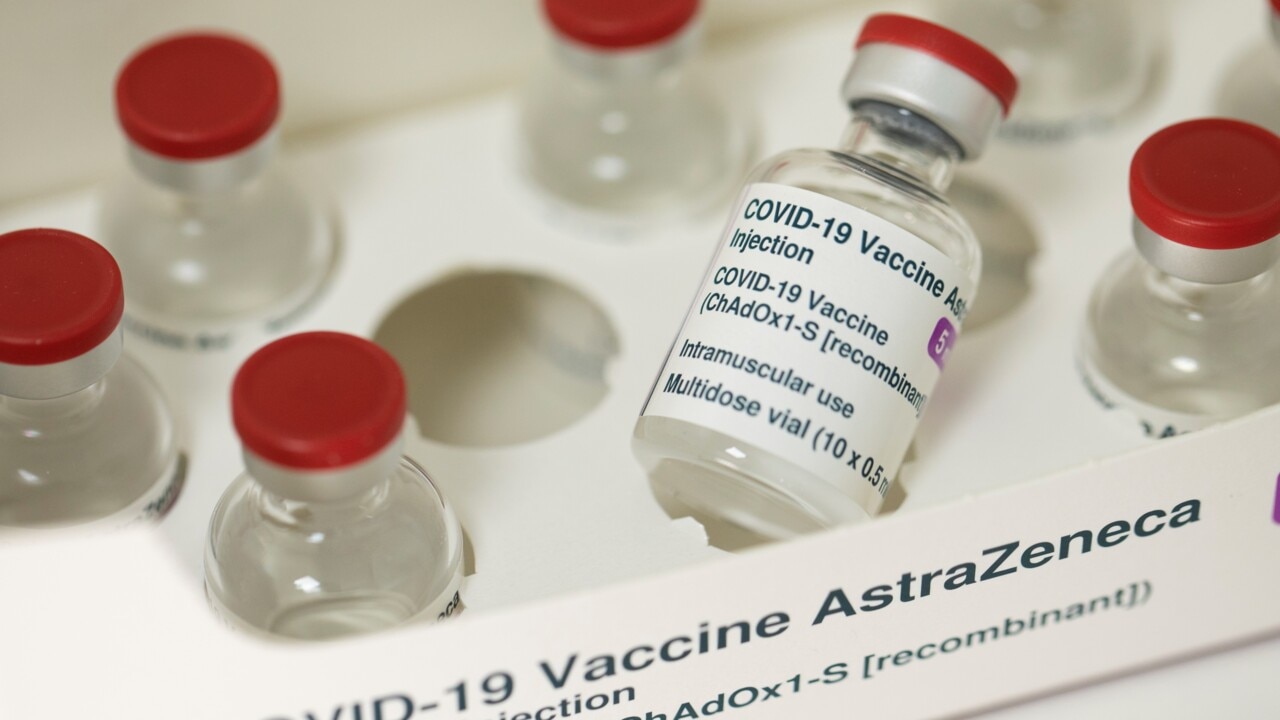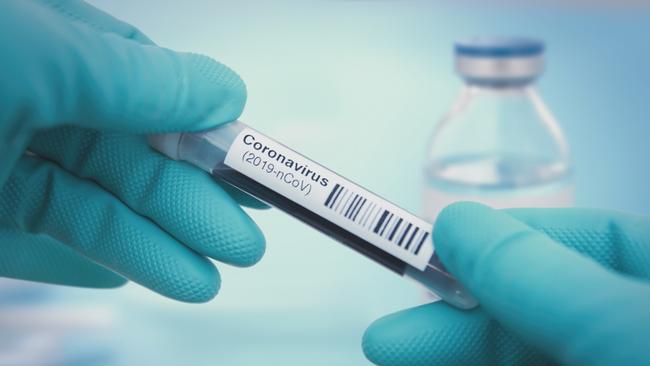Researchers develop Covid-19 treatment to ‘stop the virus in its tracks’
Melbourne scientists have developed a groundbreaking Covid-19 treatment that could shut down the disease when it is still in the nose.

Coronavirus
Don't miss out on the headlines from Coronavirus. Followed categories will be added to My News.
Melbourne scientists have found a way to stop Covid cells growing in and populating infected human cells.
This clears a major hurdle in the development of the first Covid-19 treatment designed to shut down early disease when it is still in the nose.
Researchers from the Peter Doherty Institute for Infection and Immunity and Peter MacCallum Cancer Centre say their breakthrough finding – published in the prestigious journal Nature Communications – relies on gene editing “molecular scissors”, previously used to attack cancer, to destroy the genetic material of the Covid virus.
Unlike vaccines that target the mutated evolving spike of the virus protein, the hallmark of this experimental method — proven in a test tube — is that it can eradicate different strains of the virus because it is based on the genetic blueprint.

When Covid-19 hit Australia in March last year, Doherty Institute director Sharon Lewin was receiving 20 calls a week from researchers pitching potential projects.
One of those phone calls was from Peter Mac’s Dr Mohamed Fareh and Professor Joe Trapani, who showed they could tweak their cancer gene editing tools – called CRISPR-Cas13b – to knock out the genetic basis of Covid cells.
“It disturbs the replication process of the virus,” Dr Fareh said.
“The virus relies on RNA as its blueprint for making new virus. The molecular scissor we have recognise that RNA of the virus and cuts it. It just degrades. The virus has no blueprint, so it can’t replicate inside.”
Dr Fareh unlike traditional drug discovery, that took many years of trial-and-error experimentation for each new target, theirs was a platform approach that had the potential to be readily applied to other Covid variants or RNA viruses, such as HIV, hepatitis and future pandemics.

“The way conventional drugs are developed they target proteins and you have the key that will fit one lock,” he said.
“If you have different locks you need many other designs to come up with the perfect key.
“What we have is the factory to make any key in a week, because we know the RNA sequence of the virus.
“What is also really nice about this technique, they key we put inside will recognise only the virus and won’t harm any other tissue.”
Professor Lewin said after their successful results in the test tube, they were now devising a way of packaging the CRISPR molecules into fat bubbles, that could be delivered as an antiviral nasal spray. It will be tested first in mice.
“This has the potential to be something that we could use to treat everyone as soon as we diagnose them to stop the virus in its tracks,” Prof Lewin said.
It comes as clinical trials of another nasal spray developed by an Australian company get underway in Sydney.
The self-administered nasal spray developed by ENA Respiratory works by activating immune cells that line the nasal passages to stop viral infections entering the body.
The team also wants to trial it in healthy people aged 65-85 years old, who will use it
every three days for two weeks in ascending doses.
“Vaccines have been slowing the spread of COVID-19 in a number of countries, but the world remains at risk with the emergence of variants with increased transmissibility, such as the Delta variant, first discovered in India,” co-founder and chief executive of ENA Respiratory Dr Christophe Demaison said.
“Being agnostic to specific virus or viral variants is one of the potential key strengths of INNA-051”.
The spray reduced Covid-19 replication by up to 96 per cent in a peer-reviewed study in ferrets performed by Public Health England last year.
The initial human clinical trial underway now will test whether the spray is safe for use in humans.




